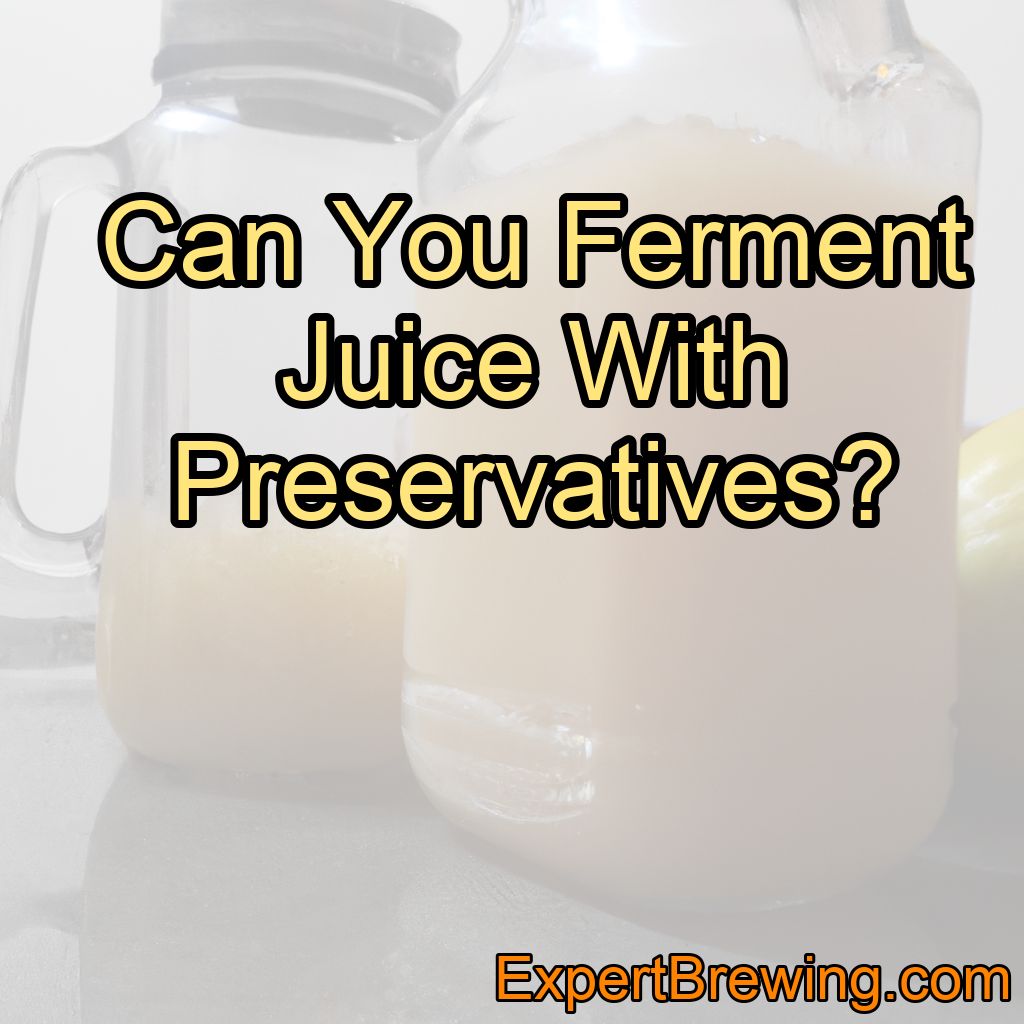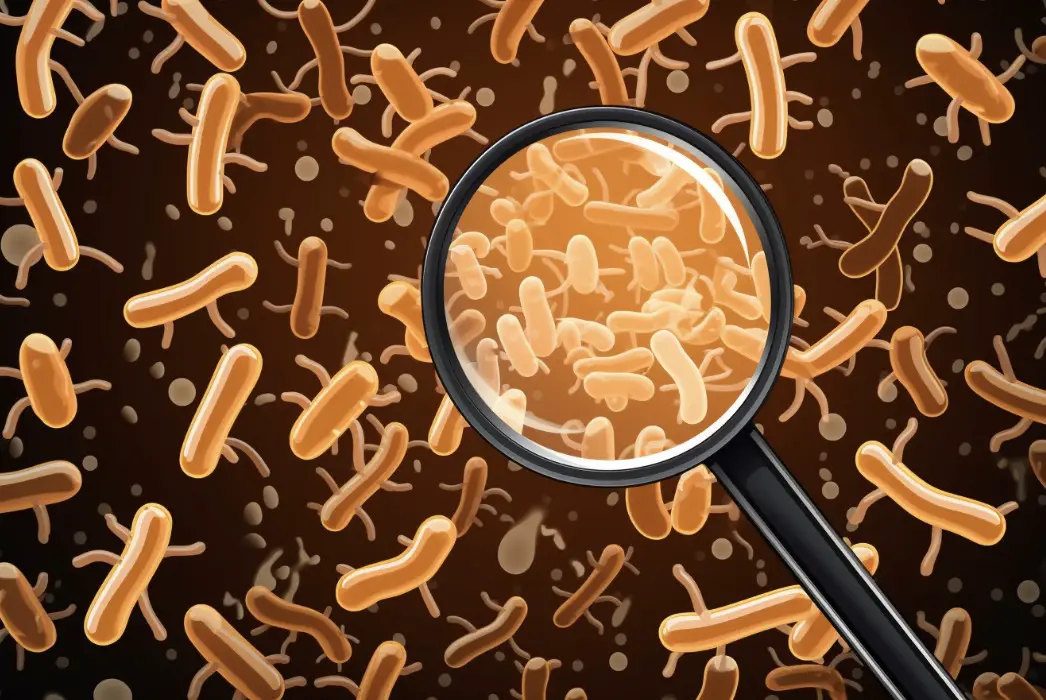In this blog post, I will be discussing the process of fermenting juice with preservatives, drawing from my years of experience as a brewer. Fermentation is the process of converting sugar into alcohol and carbon dioxide by the action of yeast. This process is essential for making a wide range of alcoholic beverages, including wine, beer, and cider. The question is, can you ferment juice with preservatives? The answer is:
You can technically ferment juice with preservatives, but it is not recommended. Preservatives can inhibit the fermentation process and negatively affect the taste and quality of the final product.
In this post, I will go into depth about the different types of preservatives, how they affect the fermentation process, the importance of using unpreserved juice, and alternative methods of preserving your homebrew. Let’s dive in!
The Role of Preservatives in Juice
Preservatives are added to juice to extend its shelf life and prevent spoilage caused by bacteria, yeast, and mold. They work by inhibiting the growth of these microorganisms, which can cause the juice to spoil and become unsafe to consume. Some common preservatives used in commercial juice products include potassium sorbate, sodium benzoate, and sulfites.
While these preservatives are effective at preventing spoilage, they can also interfere with the fermentation process when making homebrew. This is because the same microorganisms that they inhibit – yeast and bacteria – are necessary for fermentation to occur.
How Preservatives Affect Fermentation
Preservatives can have a negative impact on the fermentation process in several ways. First and foremost, they can inhibit the growth and activity of the yeast, which is necessary for sugar conversion and alcohol production. This can lead to a stuck fermentation, where the yeast is unable to fully ferment the sugar in the juice, resulting in a sweet, low-alcohol beverage.
Additionally, preservatives can alter the flavor profile of the final product. For example, sodium benzoate can impart a metallic taste, while potassium sorbate can leave a slightly bitter aftertaste. Sulfites can also affect the taste of the final product by reacting with certain compounds in the juice, leading to off-flavors and a reduced aroma.
The Importance of Using Unpreserved Juice for Fermentation
To ensure a successful fermentation and a high-quality final product, it is crucial to use juice without preservatives. Unpreserved juice provides the ideal environment for yeast to thrive and allows for a complete and efficient fermentation.
When selecting juice for fermenting, always read the ingredient list to ensure that no preservatives have been added. Look for 100% pure, all-natural juice without any additives. You can also use fresh, unpasteurized juice, as long as it has not been treated with any preservatives.
Can You Remove Preservatives from Juice?
Unfortunately, there is no easy way to remove preservatives from juice once they have been added. Some methods, such as dilution or heating, may reduce the concentration of preservatives, but they also have the potential to negatively affect the juice’s flavor and nutritional content.
The best course of action is to avoid using juice with preservatives in the first place and opt for all-natural, preservative-free options instead.
Alternative Methods for Preserving Homebrew
If you are concerned about preserving your homebrew and preventing spoilage, there are several alternative methods that can be used in place of commercial preservatives. These methods include:
1. Pasteurization: Heating the juice to a specific temperature for a short period of time can effectively kill off any harmful bacteria, yeast, and mold. This can help extend the shelf life of your homebrew without the need for chemical preservatives.
2. Refrigeration: Keeping your homebrew at a low temperature can slow down the growth of spoilage-causing microorganisms, helping to preserve the quality of your beverage.
3. Sterilization: Properly sterilizing all equipment and containers used in the brewing process can help prevent the introduction of unwanted bacteria and other contaminants.
4. Proper storage: Storing your homebrew in a cool, dark place can help preserve its flavor and prevent spoilage.
5. Using an airlock: An airlock allows carbon dioxide produced during fermentation to escape while preventing oxygen and other contaminants from entering the fermenter. This can help protect your homebrew from spoilage.
Conclusion: Fermenting Juice with Preservatives
In conclusion, while it is technically possible to ferment juice with preservatives, it is not recommended due to the potential negative effects on the fermentation process and the quality of the final product. Instead, opt for all-natural, preservative-free juice to ensure a successful fermentation and a delicious homebrew.
Here are 10 facts about fermenting juice with preservatives:
1. Preservatives are added to juice to extend shelf life and prevent spoilage.
2. Common preservatives include potassium sorbate, sodium benzoate, and sulfites.
3. Preservatives can inhibit the growth and activity of yeast, leading to incomplete fermentation.
4. The flavor and aroma of the final product can be negatively affected by preservatives.
5. Unpreserved juice is ideal for fermentation, allowing yeast to thrive and convert sugar into alcohol.
6. Removing preservatives from juice is difficult and can negatively affect flavor and nutritional content.
7. Alternative methods for preserving homebrew include pasteurization, refrigeration, sterilization, proper storage, and using an airlock.
8. Always read the ingredient list when selecting juice for fermentation to ensure no preservatives have been added.
9. Using fresh, unpasteurized juice can also be an option for fermentation, as long as it has not been treated with preservatives.
10. Opt for all-natural, preservative-free juice for the best results when fermenting at home.
FAQs
What preservatives stop fermentation?
Sulfites, benzoates, and sorbates are commonly used preservatives that can stop fermentation by inhibiting the growth of yeast and other microorganisms.
Can you ferment juice with potassium sorbate?
No, potassium sorbate is a preservative that inhibits the growth of yeast and other microorganisms, which is necessary for fermentation. Therefore, it is not possible to ferment juice with potassium sorbate.
Does sodium metabisulfite stop fermentation?
Yes, sodium metabisulfite can stop fermentation by inhibiting the growth of yeast and other microorganisms. It works by releasing sulfur dioxide gas, which is toxic to these organisms. However, the effectiveness of sodium metabisulfite in stopping fermentation depends on various factors such as the concentration used, the pH of the solution, and the temperature.
Will sulfites stop fermentation?
Sulfites can slow down or inhibit fermentation by killing or suppressing yeast and bacteria, but they will not completely stop fermentation.
What preservative to use for fermented juice?
The most commonly used preservative for fermented juice is potassium sorbate, which inhibits the growth of yeast and mold.
Can you ferment juice with sulfites?
It is not recommended to ferment juice with sulfites as they can inhibit the growth of yeast and other beneficial microorganisms needed for fermentation. It is best to use sulfite-free juice for fermentation.




